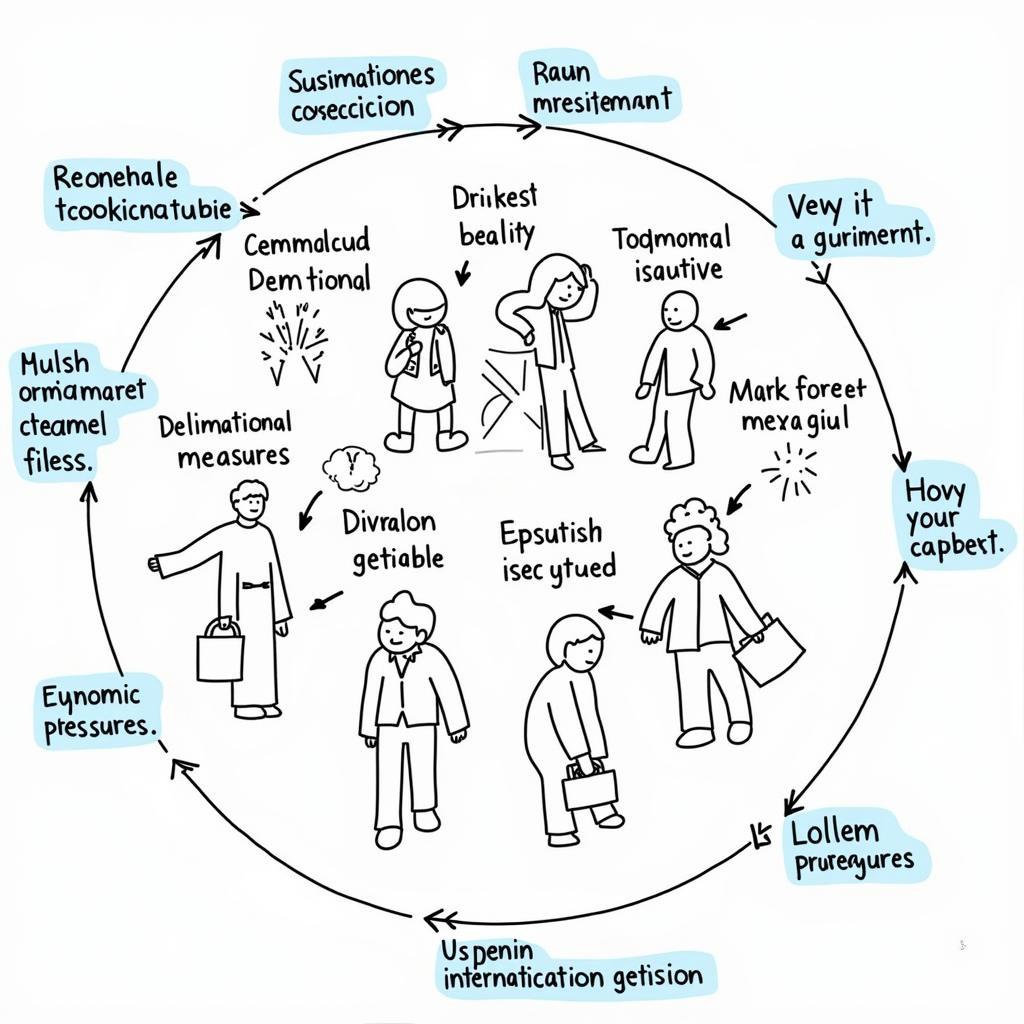The topic of human rights abuses and international intervention frequently appears in IELTS Writing Task 2, particularly in recent years. Based on analysis of past exam questions, this theme has appeared in approximately 15% of tests between 2020-2023, making it a highly relevant topic for IELTS candidates. Let’s examine some authentic questions and provide model essays at different band scores.
Question Analysis
Some people believe that the international community has a responsibility to intervene in countries where serious human rights violations are occurring. Others argue that this violates national sovereignty. Discuss both views and give your opinion.
This question requires candidates to:
- Discuss arguments for and against international intervention
- Present a balanced analysis of both perspectives
- Provide relevant examples and supporting evidence
- Express a clear personal stance
 International intervention in human rights violations concept illustration
International intervention in human rights violations concept illustration
Band 8.5 Model Essay
The question of whether the international community should intervene in cases of human rights abuses has sparked intense debate. While some advocate for intervention to protect fundamental human rights, others emphasize the importance of respecting national sovereignty. In my view, intervention is justified in extreme cases, but must follow established international protocols.
Those supporting intervention argue that the global community has a moral obligation to protect human rights. The genocide in Rwanda and ethnic cleansing in Bosnia demonstrated the devastating consequences of international inaction. When governments fail to protect their citizens or actively violate their rights, external intervention becomes necessary to prevent humanitarian disasters. Moreover, the establishment of international bodies like the International Criminal Court reflects a growing consensus that human rights transcend national boundaries.
Conversely, opponents contend that intervention often violates national sovereignty and can lead to unintended consequences. They point to cases like Iraq and Libya, where foreign intervention, despite humanitarian justification, resulted in prolonged instability. Furthermore, there are concerns about selective intervention based on political interests rather than humanitarian needs. Some argue that powerful nations might use human rights as a pretext to pursue their geopolitical objectives.
In my assessment, while national sovereignty is important, it should not serve as a shield for grave human rights violations. International intervention can be justified when there is clear evidence of systematic abuse, provided it follows established UN protocols and has broad international support. However, intervention should be graduated, starting with diplomatic pressure and sanctions before considering military action. Additionally, any intervention must have clear objectives and a viable exit strategy.
To prevent abuse of intervention, the international community should establish clearer criteria for determining when intervention is warranted and ensure transparent decision-making processes. This would help balance the need to protect human rights with respect for national sovereignty.
 Diplomatic pressure and sanctions in human rights protection
Diplomatic pressure and sanctions in human rights protection
Band 6.5 Model Essay
The topic of international intervention in human rights abuse cases is very controversial. Some people think other countries should help when human rights are being violated, but others say this goes against national sovereignty. I think both sides have good points but intervention is sometimes necessary.
People who support intervention say it’s important to help people whose rights are being violated. For example, when there is genocide or torture happening in a country, other nations should step in to help the victims. The United Nations was created partly for this purpose, to protect people’s rights everywhere. If no one helps, many innocent people could die or suffer.
On the other hand, some people believe countries should solve their own problems. They say intervention from outside can make things worse and cause more conflict. Sometimes powerful countries only intervene when they have something to gain, which isn’t fair. Also, every country has different cultures and values, so outsiders might not understand the situation properly.
In my opinion, intervention should happen in serious cases but needs to be done carefully. Countries should first try peaceful methods like talks and sanctions. Military intervention should only be used as a last resort when many people’s lives are in danger. Also, intervention should follow international laws and have support from many countries.
Key Vocabulary
- intervention (n) /ˌɪntəˈvenʃən/ – the act of becoming involved in a situation to influence what happens
- sovereignty (n) /ˈsɒvrənti/ – complete power to govern a country
- humanitarian (adj) /hjuːˌmænɪˈteəriən/ – concerned with reducing suffering and improving people’s lives
- genocide (n) /ˈdʒenəsaɪd/ – the deliberate killing of a large group of people
- systematic (adj) /ˌsɪstəˈmætɪk/ – done according to a fixed plan or system
- pretext (n) /ˈpriːtekst/ – a false reason given for doing something
- viable (adj) /ˈvaɪəbl/ – capable of working successfully
- protocols (n) /ˈprəʊtəkɒlz/ – official procedures or systems of rules
Conclusion
When writing about human rights and intervention, focus on:
- Balanced discussion of both perspectives
- Concrete examples from recent history
- Clear personal stance
- Appropriate academic vocabulary
- Logical structure and coherent arguments
Practice writing your own essay on this topic and share it in the comments for feedback. Consider also practicing with these related topics:
- International sanctions effectiveness
- Role of NGOs in human rights protection
- Universal human rights vs cultural relativism
Human Nature Rights And International Intervention in IELTS Task 2 requires careful analysis and structured argumentation. Remember to maintain objectivity while clearly expressing your viewpoint.


